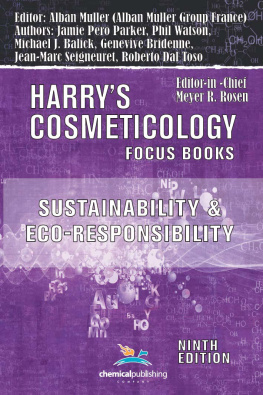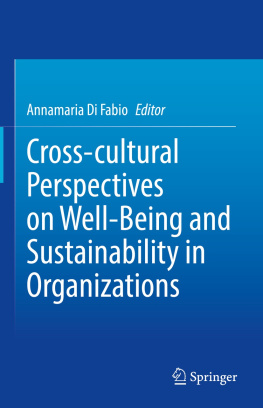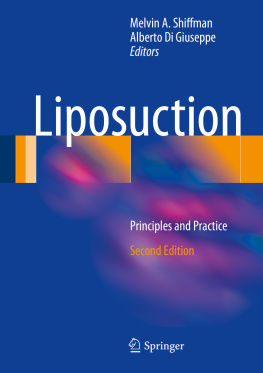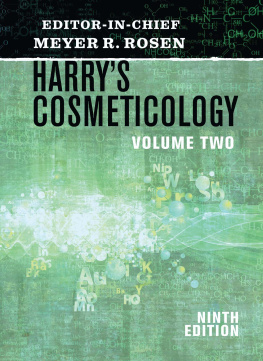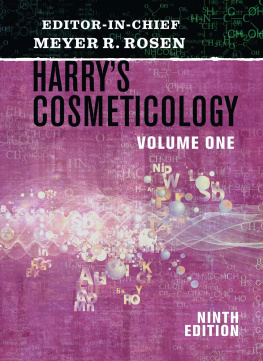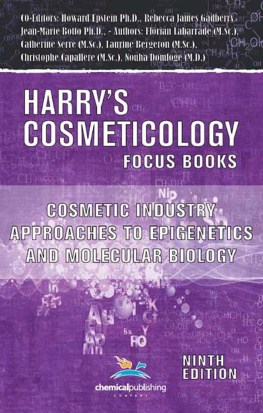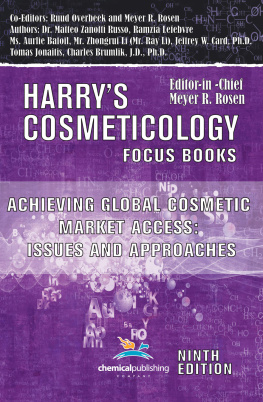PART 12.0
SUSTAINABILITY AND ECO-RESPONSIBILITY:
A GLOBAL APPROACH FOR THE COSMETIC AND
PERSONAL CARE INDUSTRY
Editors Overview
Alban Muller (President, Alban Muller Group)
In the cosmetic world, we have seen the green wave, then the organic tide, and now the eco-responsibility tsunami. Do we have to consider that this wave will go by, allowing a new wave to come in? Like the ocean, waves come and go; some larger than others. At the time of this writing, we choose to consider that this eco-responsibility tsunami is probably more in line with various other converging evolutions and will rise and fall as previous and future waves. Since we must surf this wave or lose our customers, let us consider some important current parameters:
- The first and most important parameter we are all faced with is the rapid expansion of humankind, which, in the last century, has multiplied our numbers on this planet by a factor of four. This sobering statistic leads us to the perspective of a humanity numbering 9 billion people in the next few decades. As we anticipate this incredible increase, there will inevitably be an increasing collective pressure on the Earths resources, thereby leading to concerns about their availability. Thus, renewability becomes a key issue and concern in the whole industrial process .
- The second important parameter is that consumers dont expect the same things from companies that supply their wants and needs any more. Not only do they want good value for their money, but they also expect that companies respect some values such as: the comfort of their employees, the offer of equal opportunities, and consumer safety along with an increasing respect for the global environment. For example, large U.S. distribution companies have recently embarked on programs to ban various chemicals suspected of being harmful to people or the environment.
When combined, these facets compel the formation of a new management approach that needs to show increased concern for the people and the planet, while not forgetting about profits. The only way to maintain an appropriate balance of these parameters is to take a better look at our products and how we produce them . By doing so, we can be innovative while finding new and economical ways to create new products with less impact on our environment.
As we explore these ideas in this part of Harrys Cosmeticology , 9th Ed., one important observation emerges:
What we see is that eco-conception can bring innovative concepts, themselves generating new approaches and new technologies.
The various articles in the section show two major points of view and some proactive pathways to achieving our goals.
- The first pathway consists of perfecting the existing industrial practices in order to reduce their global impact and produce better products (natural extracts and ingredients), which also results in superior performance when compared to their synthetic counterparts.
- The second pathway involves an exploration of the kinds of new technologies that could be introduced to allow us to benefit from natural molecules, even by way of emerging biofermentation technology.
It is obvious that all these efforts have the potential to create the new greener economy, which in turn could be a source of technological progress.
TABLE OF CONTENTS
Part 12.0 A Global Approach for the Cosmetic and
Personal Care Industry
Editors Overview
Alban Muller (President, Alban Muller Group)
Part 12.1 Defining Sustainability and how it changes
the innovation process
Author Jamie Pero Parker (Innovation Manager, RTI International) and
Phil Watson (Technology Commercialization
Manager, RTI International)
12.1.2 Innovation is a critical but challenging
component of any sustainability strategy
b. Open innovation and sustainability
are synergistic
12.1.3 Integration of sustainability principles into
innovation practices is evolutionary
b. Few companies explicitly recognize and
exploit open innovation as a tool to help
them on this sustainability pathway
c. Companies practice open innovation for
sustainability adopt a more complete
model of open innovation
d. Practical lessons can be learned from
companies that have recognized the
synergies between sustainability and OI
Part 12.2 A Botanists view of Sustainability:
Use or Abuse in the Personal Care Industry?
Author Michael J. Balick (Vice President of
Botanical Sciences, Director of the Institute of
Economic Botany, New York Botanical Gardens)
2. Understanding why the plant is used in
the product, and what part or form will
give the best result to the consumer
3. Truthful representation of the local uses
of the plant in marketing efforts
4. Making sure the environment is not
degraded as a result of harvesting botanicals
5. Ensuring that local communities are not
negatively impacted by the harvest of the plant
6. Under the spirit and intent of the United
Nationssponsored Convention on
Biodiversity, compensation to groups and
source countries where the materials and
ideas were obtained
Part 12.3 The Herboretum Network for promoting local
cultures and biodiversity
Author Genevive Bridenne (CIO, Alban Muller Group)
12.3.2 The Herboretum, a true open-air plant
laboratory dedicated to plants used in beauty,
health, and well-being
a. An area of reflectiona scientific and
natural approach
b. An area of protection, a long-term commitment
to the protection of plant resources
12.3.3 The Herboretum organizes themed visits of
four different kinds: school groups, the general
public, professionals, and organizations
12.3.4 The Herboretum Network, a unique interface
between the phytocosmetic industry and biodiversity
Part 12.4 The advantages and potential contribution of local
cultures for carbon footprint reduction
Author Jean-Marc Seigneuret (Technical Director,
Alban Muller Group)
Part 12.5 Cosmetic ingredients from plant cell cultures:
A new eco-sustainable approach
Author Roberto Dal Toso ( R&D Manager IRB SpA)
12.5.4 Advantages of plant cell cultures:
the new alternative
12.5.6 Phenylpropanoids: structure, metabolism,
and functions in plants
Author Alban Muller (President, Alban Muller Group)
Part 12.7 The industrial frame: Concrete, green solutions
for production and waste management
Author Alban Muller (President, Alban Muller Group)
12.7.1 An example of an alternative, eco-friendly
process for plant extraction: Zeodration, a unique eco-responsible solution to dry plant extracts
12.7.2 Water and biodiversity gardens
An original innovation: Restoring wetlands in
industrial areas
PART 12.1
DEFINING SUSTAINABILITY AND HOW
IT CHANGES THE INNOVATION PROCESS
Authors
Jamie Pero Parker (Innovation Manager, RTI International)
Phil Watson (Technology Commercialization Manager, RTI International)
ABSTRACT
Innovation will be essential to addressing the increasingly critical sustainability challenges companies face, such as limited natural resources, energy constraints, and consumer demand. To address these emerging business drivers and meet the green demands of consumers, many companies are introducing sustainability practices into their businesses. These practices require companies to measure success not just monetarily, but also by the cost to the people who make the goods, the impact of goods and services on surrounding communities, and the price paid by the environment.
Once viewed as a fleeting consumer trend, sustainability is now seen as a new business paradigm. This chapter presents an overview of concepts that are essential to the continued growth and effective product generation for cosmetic and personal care products to compete effectively in this changing world. Innovation is essential to addressing these critical sustainability challenges that are reshaping industries and supply chains. Ingredients, packaging, and manufacturing equipment all play an important role in the environmental profile of a product. However, no company can source all of these materials in isolation. For a company to meet the eco-responsible standards demanded by consumers and required by regulations, it must be willing to innovate, improve transparency, and work with outside sources.
Next page
